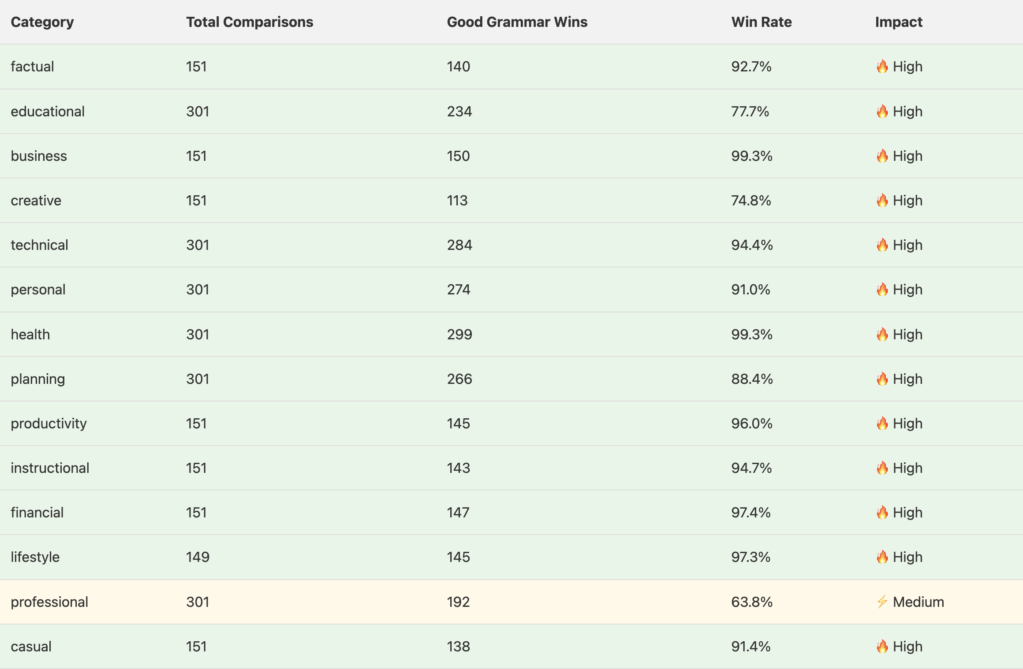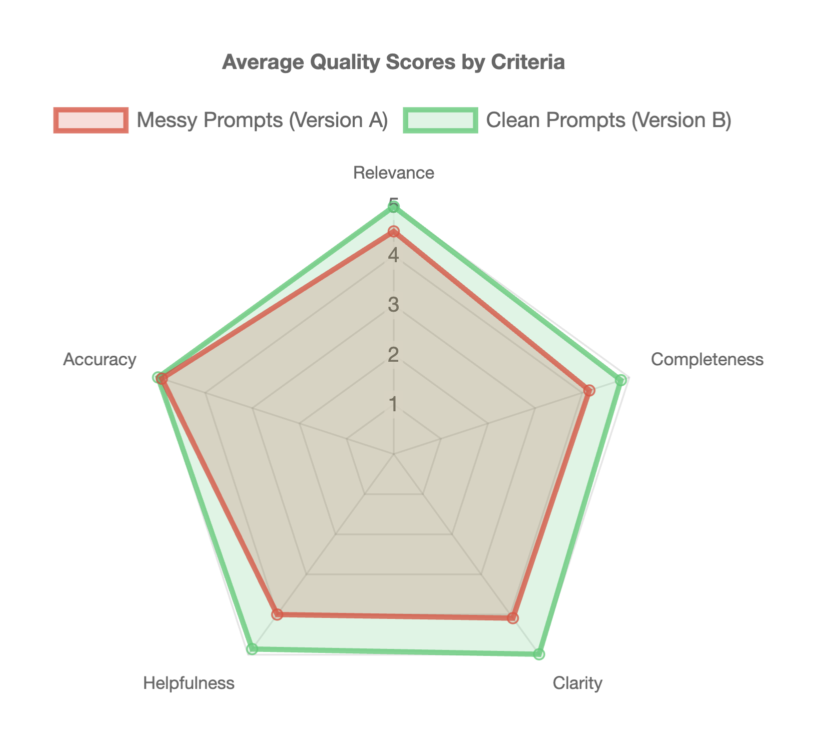
Does the way you write your prompts actually impact the quality of AI responses?
By Jameal Ghaznawi, Stellar
To find out, we designed a robust evaluation framework with the help of Cursor and tested the impact of messy vs. clean writing across a wide range of scenarios.
The Experiment
We created prompt pairs across 14 categories (business, technical, health, etc.) to test how formatting affects AI responses:
Messy Example:
“im learing python and my cod isnt workin. how do i fix erros in my skript?”
Clean Example:
“I’m learning Python and my code isn’t working. How do I fix errors in my script?”
We then:
- Fed the prompts to four AI models (GPT‑4, GPT‑3.5, Claude variants).
- Collected their responses.
- Used GPT-4O as a blind judge, rating outputs on accuracy, clarity, and helpfulness.
The Results
Overall Preference:
Clean prompts won 88.6% of the time (across 3,012 comparisons).
Average Scores:
- Poor writing: 4.33 / 5
- Clean writing: 4.93 / 5
Category Highlights:
- Accuracy: Barely changed (4.92 → 5.00).
- Clarity: Big jump (4.09 → 4.99).
- Helpfulness: Noticeable improvement (4.00 → 4.86).
- Technical Prompts: The standout 94.4% preference for clean versions.
What This Means
The difference isn’t night and day. Both messy and clean prompts usually get you solid responses. The upgrade is more like moving from a B+ to an A- than fixing something broken.
- Typos won’t break the AI.
- Clean writing provides a consistent, measurable boost, especially for technical help, where clarity is crucial.
- For most cases, the extra 30 seconds to polish your question may be worth it, but skipping it won’t cost you dramatically better answers.
Why This Matters for Teams
At Stellar, we don’t just study prompts, we help organizations turn AI into a scalable, reliable part of their workflows.
The takeaway here is simple: small improvements in clarity lead to consistently better outputs. When multiplied across hundreds of prompts, projects, or customer interactions, that “B+ to A-” shift becomes a competitive advantage.
If your team wants to:
- Get more consistent, accurate AI outputs
- Build workflows that scale beyond individual prompt tweaking
- Move from “pretty good” answers to great answers
Partner with Stellar, and we’ll help your team make AI a dependable part of everyday work.


